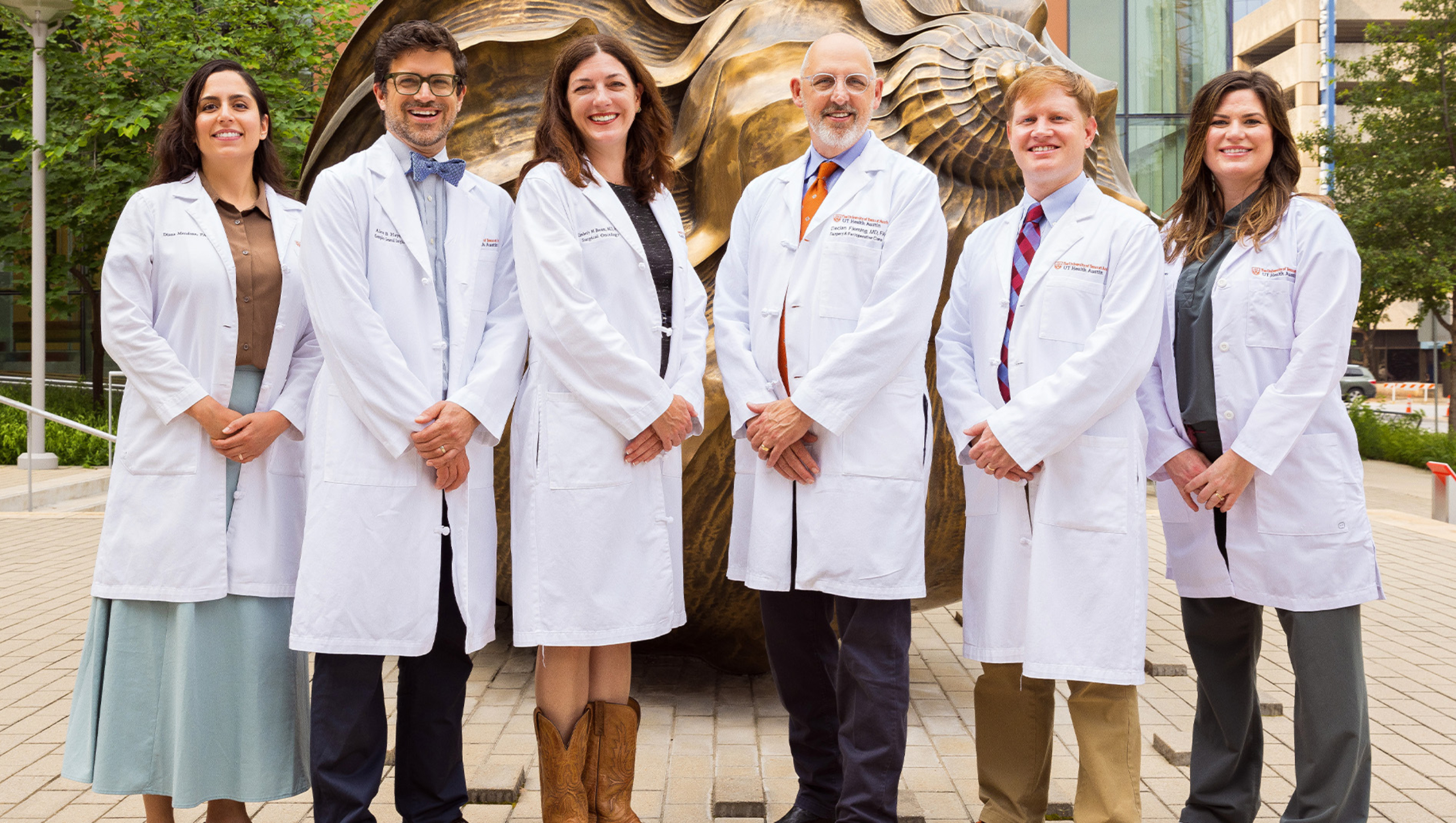The Division of Surgical Oncology in the Department of Surgery and Perioperative Care is committed to providing state-of-the-art care to cancer patients. Its efforts are devoted to patient-centered evaluation and management of cancer; to educating medical students and residents; and to advancing science of cancer care through clinical, translational and basic science research.

Surgical oncology physicians are trained in general surgery, have been certified by the American Board of Surgery, have received additional training in surgical oncology and are active members of the Society of Surgical Oncology. Areas of expertise include gastrointestinal cancers, breast cancer, melanoma, endocrine cancers and soft-tissue sarcoma.
Areas of Expertise
The department’s team of surgical oncologists have a combined experience of more than 70 years in the treatment of cancers of the gastrointestinal tract. It includes expertise in performing both open and minimally-invasive surgical treatment of a variety of gastrointestinal cancers, including:
- Cancers of the colon, rectum and peritoneal surfaces;
- Cancers of the liver and bile ducts;
- Pancreatic cancers and cystic neoplasms; and
- Neuroendocrine cancers.
The division offers the most comprehensive, effective and least invasive methods to successfully treat breast cancer. Its emphasis is on breast preservation when possible through breast conserving surgery and radiation therapy. When a total mastectomy is most appropriate, surgeons also offer immediate reconstruction using the patient’s own tissues or implants according to the patient’s preferences. Care teams are also sensitive to the anxiety women with breast cancer experience, so counseling and emotional support are integral parts of the breast care center.
The division’s surgeons serve in leadership roles in the multidisciplinary treatment of melanomas and other high-risk skin cancers. Services include resection of cutaneous cancers, sentinel lymph node biopsy for staging in the treatment of primary malignancies, and resection of visceral, nodal and in-transit metastatic disease. Additionally, oncolytic virus therapy is available in certain patients with metastases. The division employs a variety of surgical and non-surgical techniques in the treatment of local, regional, and distant metastasis.
The division treats both cancers and benign tumors of the thyroid, parathyroid and adrenal glands. Care teams frequently employ the latest technologies, including radio-guided surgery and minimally invasive surgery to treat these conditions.
Since soft tissue sarcoma tumors can appear almost anywhere, the division’s surgeons employ a variety of soft-tissue sarcoma surgical approaches depending on each patient’s situation. Surgeons are experienced with a broad variety of operative approaches to prioritize limb and functional preservation while working to completely remove the soft-tissue sarcoma. They frequently collaborate with medical oncology, radiation oncology and reconstructive surgery colleagues to offer patients the best chance for a cure with the highest likelihood of a return to normal life after treatment.